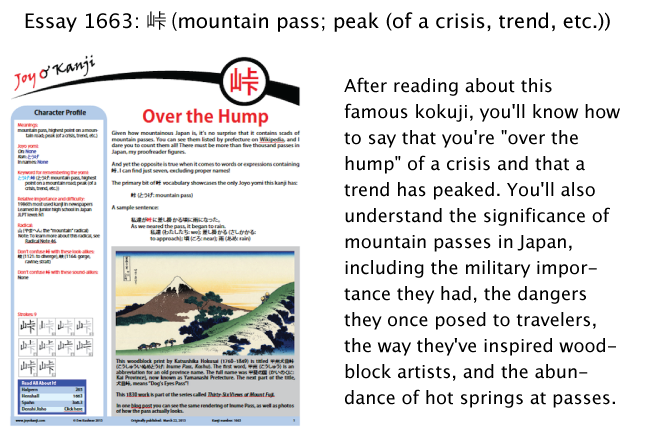Body Blues
I've had nothing but health problems over the past five weeks. First, an itchy rash on the legs—a bad reaction to food, I'm told. Then the flu and a cold, which left behind a raspy cough as a souvenir that I'm still enjoying. Eyestrain caused headaches and, strangely enough, created a blue line across part of my face. A yoga mishap and a Thai massage produced more aches and pains, which are mostly gone. And then today brought a horrible dentist appointment where I found that I've made absolutely no progress with a problem that has long dogged me. (I really thought I had licked it, so to speak! I imagined that they would congratulate me and ask for the secret to my success. Ha!) Worse yet—much worse—I've also developed a potentially serious problem, one I didn't even know a person could have. They've referred me to a specialist for possible "bone regeneration." That involves taking freeze-dried bones from a cadaver and adding them to the patient's body.
Given all this, I thought I would blog about the body. Hmm, I just typed that as "blody." Yes, I'll blog about the bloody body and all its bloody problems.
Oh, speaking of blood, I had a rather amusing time with my acupuncturist last week. I scheduled an appointment because I couldn't shake my cold after two weeks, and I was tired of feeling that I was drowning in my own fluids. She works miracles. The problem is that she barely speaks English but is very chatty by nature, so she just uses Chinese (and lots of gestures) whenever she can't think of the English. Of course I understand none of her Chinese (and little of her English), but I thought perhaps I grasped one thing last week.
She told me that when someone gets sick, the red blood and the white blood ... She stopped and imitated a boxing match. That I understood! I heard her say shibau again and again, and I was positive "blood cell" must be 血房. Surely a word for "blood cell" would include 血 (blood). And 房 has the on-yomi of ボウ, which is close to -bau. Moreover, 房 primarily means "compartment," which would be fitting for a blood cell. I lay on the table with needles jabbed into me from head to toe, and yet I felt really happy that I had figured it out.
Well, I was right about 血 but wrong about the next character, which she later drew for me while muttering to herself in Chinese. She had meant 球 (ball, sphere). The word 血球 is pronounced xueqiu in Mandarin (which is what she speaks), and it sounds nothing like shibau, so I'm not sure what happened. But it's not a total loss; I've since learned that 血球 turns out to be the Japanese word for "blood cell," too. It has the yomi of けっきゅう.
I think I'll need to study Chinese for real at some point so I can satisfy my curiosity. I've been approaching it the lazy way!
Time for a quick quiz. What do you think the following affliction could be?
金欠病
Think it over, and I'll provide the answer at the end.
Okay, now for some fun dental terms, if that's not too oxymoronic. Here's the Japanese word for "tartar":
歯石 (しせき: tartar) tooth + stones
Stones?! Yes, tartar consists of calcified deposits that accumulate on the teeth, so the breakdown is perfect, even though tartar doesn't feel like stones.
If it's weird to think that we might have rocks in our mouths, it's even funnier to imagine dogs in there. I'm talking about the term for "canine tooth":
犬歯 (けんし: canine tooth) dog + tooth
It has a surprising synonym:
糸切り歯 (いときりば: canine tooth) thread + cutting + tooth
When people sew, they often bite off thread with their canine teeth—hence the term!
For more tooth terminology, check out essay 1987 on 臼, which means "mortar." Mortar? Yes, along with rocks and dogs, we have mortars in the mouth. They're known as molars:
臼歯 (きゅうし or うすば: molar) mortar + tooth
Because of their small depressions, molars are perfect devices for grinding, so the mortar kanji is quite apt!
As long as we're talking about eating, let's move down to the abdomen. When abdominal pain becomes acute, there's reason to think that it could be a problem with this mysterious organ:
盲腸 (もうちょう: appendix) blind + gut
What an odd breakdown! It turns out to be a direct translation from the Dutch blindedarm. A blinded arm?! No, no. This word breaks down as blind (blind) + darm (intestine). Now I'd love to know why the Dutch chose such a combination.
Okay, now that we've done nearly a full body scan, it's time for me to reveal the quiz answer. Here it is:
金欠病 (きんけつびょう: money + lack + affliction) means "poverty."
It's not a typical word, and it's not a serious problem. People use it jokingly, although I saw it in a sentence that looked kind of grim to me:
姉は小生の金欠病をいつも心配してくれていた。
My sister always worried about my poverty.
姉 (あね: elder sister); 小生 (しょうせい:
I for men (humble language); 心配 (しんぱい: worry)
In an even more joking way, people sometimes preface 金欠病 with 慢性 (まんせい: chronic), producing 慢性金欠病. With this chronic disease, they're constantly broke. Look at the "heart" radicals in 慢性. It's as if chronic poverty leads to heartache or even heartbreak!
The new essay should be good for the heart. That is, it tells you all about the mountain passes of Japan. If you chose to cross them on foot, it would certainly give you a cardiac workout—or is cardiac arrest more likely?! Here's a preview of essay 1663 on 峠:

Have a great weekend! Stay healthy!

Comments